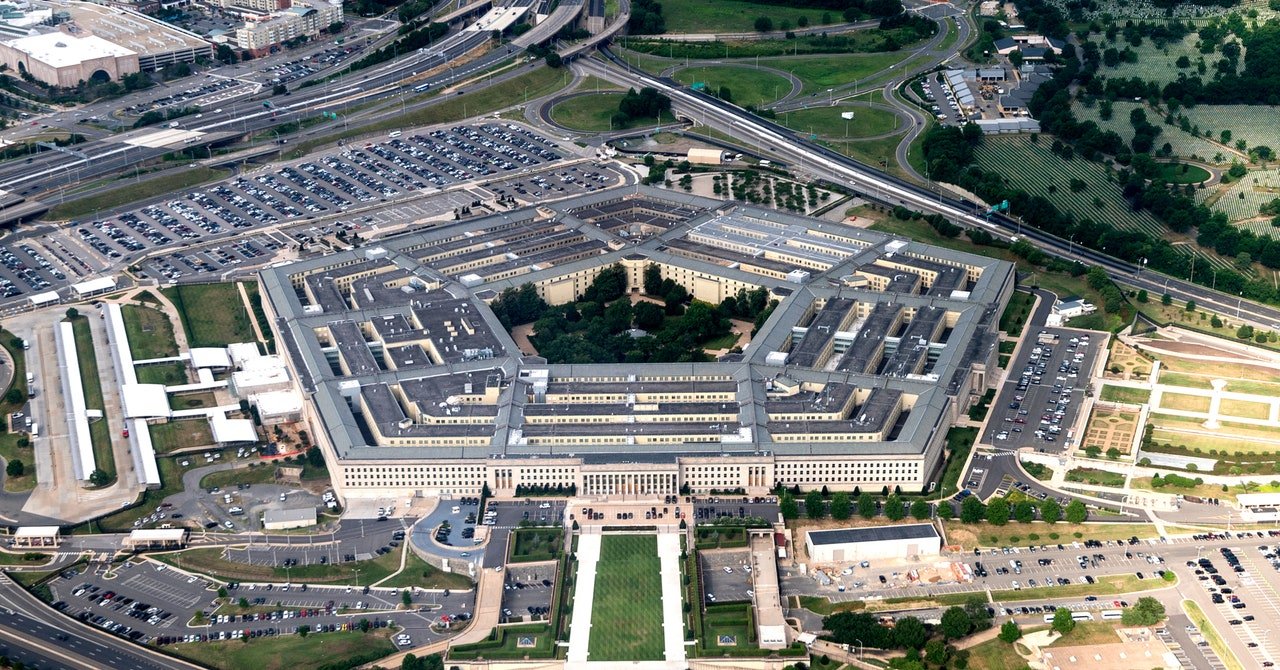Late in 2019, the Pentagon chose Microsoft for a $10 billion contract called JEDI that aimed to use the cloud to modernize US military computing infrastructure. Tuesday, the agency ripped up that deal. The Pentagon said it will start over with a new contract that will seek technology from both Amazon and Microsoft, and offers better support to data-intensive projects, such as enhancing military decision-making with artificial intelligence.
The new contract will be called the Joint Warfighter Cloud Capability. It attempts to dodge a legal and political mess that had formed around JEDI. Microsoft competitors Amazon and Oracle both claimed in lawsuits that the award process had been skewed. In April, the Court of Federal Claims declined to dismiss Amazon’s suit alleging that bias against the company from President Trump and other officials had nudged the Pentagon to favor Microsoft, creating the potential for years of litigation.
The Pentagon announcement posted Tuesday didn’t mention JEDI’s legal troubles but said the US military’s technical needs had evolved since it first asked for bids on the original contract in 2018. JEDI included support for AI projects, but the Pentagon’s acting chief information officer John Sherman said in a statement that the department’s need for algorithm-heavy infrastructure had grown still further.
“Our landscape has advanced and a new way-ahead is warranted to achieve dominance in both traditional and non-traditional warfighting domains,” Sherman said. He cited two recent AI-centric programs, suggesting that they would receive better support from the new contract and its two vendors.
One is called Joint All Domain Command and Control, which aims to link together data feeds from military systems across land, sea, air, and space so that algorithms can help commanders identify targets and choose among possible responses. In an Air Force exercise linked to the program last year, an airman used a VR headset and software from defense startup Anduril to order real air defenses to shoot down a mock cruise missile over White Sands Missile Range in New Mexico.
Sherman also suggested that JWCC would help a project announced last month to accelerate AI adoption across the Pentagon, including by creating special teams of data and AI experts for each of the agency’s 11 top military commands.
The Pentagon’s claim it will better support advanced technology like AI projects shows President Biden’s Pentagon continuing an emphasis on the military potential of artificial intelligence that began during the Obama administration and continued under President Trump. Successive secretaries of defense have said tapping that potential will require better connections with tech industry firms, including cloud providers and startups. However, some AI experts fear more military AI could have unethical or deadly consequences, and some tech workers, including at Google, have protested Pentagon deals.
Andrew Hunter, director of the Defense-Industrial Initiatives Group at the Center for Strategic and International Studies, says the Pentagon appears to have decided that because of its legal tangles, a reboot was the most efficient way to get the cloud computing resources the department has needed for some time.
Computing-dependent projects like the one seeking to link various military services and hardware are central to the Pentagon’s strategy to face up to China. “The potential of cloud computing is to be able to apply sophisticated analytical techniques such as AI on your data so you can act with greater knowledge than adversaries,” Sherman says.
JEDI was not the Pentagon’s only cloud computing contract, but the speed with which its successor can get up and running could still have a significant effect on the Pentagon’s cloud and AI dreams. Had all gone to plan, the initial two-year phase of JEDI was to have been completed in April. Hunter expects the department to try and finalize the contract quickly—but also to take care to avoid a repeat of the controversy around JEDI.
Tuesday’s announcement said that only Amazon and Microsoft meet the Department of Defense’s requirements, which include stringent security rules, but that it was open to adding new vendors if any proved capable enough.
The Pentagon declined to provide more details on the new JWCC contract but the two companies it said will be invited to take part offered positive, albeit muted, support to the reset.
In a blog post, Toni Townes-Whitley, Microsoft’s president for US regulated industries, said the company understood the Pentagon’s decision to cancel JEDI and avoid potentially years of litigation. “The security of the United States is more important than any single contract,” she wrote. “The DoD has a critical unmet need to bring the power of cloud and AI to our men and women in uniform, modernizing technology infrastructure and platform services technology.”
An Amazon spokesperson said in a statement that the company is committed to supporting the US military with the best technology and prices, and that the original contract “was the result of outside influence that has no place in government procurement.” Oracle declined to comment.
- 📩 The latest on tech, science, and more: Get our newsletters!
- How fringe stem cell treatments won far-right allies
- The race to put silk in nearly everything
- How to keep your browser extensions safe
- Oregon’s buckled roads are warning signs
- Do EMF blockers actually protect you? We asked experts
- 👁️ Explore AI like never before with our new database
- 🎮 WIRED Games: Get the latest tips, reviews, and more
- 🏃🏽♀️ Want the best tools to get healthy? Check out our Gear team’s picks for the best fitness trackers, running gear (including shoes and socks), and best headphones

Leave a Reply
You must be logged in to post a comment.